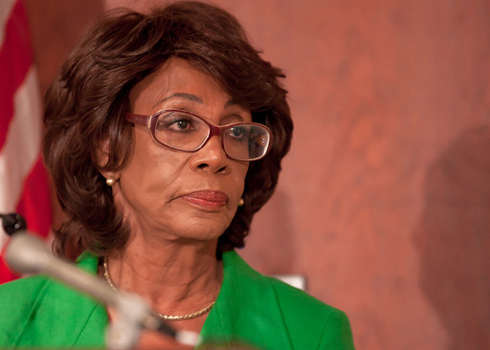Ethics experts say the House still has a lot of explaining to do when it comes to its handling of the corruption case against Rep. Maxine Waters (D-CA) last fall, which resulted in partisan backbiting, deep mistrust between Republicans and Democrats on the panel and the suspension of the lead attorney and an assistant a week before the matter was set to go to public trial.
The ethics panel has been at a virtual standstill for eight months since its internal dissension exploded onto the headlines of political publications and the Washington Post in early December. On Friday the panel announced it was extending separate investigations into Reps. Greg Meeks (D-NY), Jean Schmidt (R-OH), and two aides, but a source said the committee was forced to continue those probes because it had yet to begin looking into the matters in earnest.
The infighting was so ugly last fall that Rep. Jo Bonner (R-AL), the then-ranking Republican on the panel who now serves as chairman, called in the Capitol Police to bar the door to the committee and prevent staff from retrieving any papers or documents over the Thanksgiving Day House recess.
The panel’s then-staff director resigned amid the turmoil and unprecedented leaks from the panel, including transcripts of disagreements between Bonner and the top Democrat at the time, Rep. Zoe Lofgren (D-CA), that turned up in Slate.com.
At the time, newspapers and political websites editorialized about the need for an investigation of the committee’s handling of the Waters case and why the two attorneys on her case were put on administrative leave – what would have amounted to a watchdog-watching-the-watchdog scenario.
By that time, however, Republicans had won control of the House majority and Bonner had ascended to the top position on the committee, which is the only one in the House that is evenly divided between Republicans and Democrats.
In the ensuing months, lawmakers and the outside watchdogs community awaited an explanation of the decisions to place the two attorneys on indefinite leave. Instead, Republicans quietly found one of the lawyers a landing spot at the GOP majority of the House Natural Resources Committee, and deflected reporters’ questions by saying that it had yet to find a replacements for the top staffer on the committee so no one was around to answer them.
Last month, the committee hired Dan Schwager, who had served as an attorney on the Senate Ethics panel, to fill the top staff director and chief counsel post. And last week, the committee announced it had hired six new lawyers and promoted others from within to fill some of the numerous vacancies created by a mass exodus of aides that fled the panel in the wake of the chaotic fall.
But Bonner has yet to explain exactly what all the furor was about late last year and come clean on the dispute over the two attorneys’ handling of the Waters case. If he doesn’t do so soon, watchdogs argue, Waters would have valid reason to claim that the ethics committee botched her case and it’s time to let it go.
“I think the committee should explain all the administrative problems behind the Waters case,” said Melanie Sloan, executive director of Citizens for Responsibility and Ethics in Washington. “The questions swirling around the committee undermine its fact finding in the case.”
Given all that happened, Sloan said, it’s difficult to have confidence in the committee’s handling of the case.
“The murkiness allows those, including Rep. Waters, who question the committee’s decision to issue a statement of alleged violation, to suggest she is being railroaded,” she said.
Sloan, as well as a chorus of other watchdogs, believe the only way to turn the page on the turmoil is to appoint a special prosecutor to handle the Waters’ case.
Robert Walker, an ethics attorney at Wiley Rein who served as staff director and chief counsel to both the Senate and House Ethics Committee, believes the panel owes the public and Waters an explanation but said it would likely be a circumscribed account lest the two attorneys, who have hired their own counsels, take legal action over how their job performance is depicted.
“I don’t think they will just say, nevermind,” Walker told TPM. “I think something has to come out–there has to be some explanation…but I don’t think you can expect to hear a warts-and-all story about what occurred or a data dump.”
Unless, of course, Waters and her attorney think airing the ethics committee’s dirty laundry will help her case, which Walker said would be totally appropriate for her to do.
“If you’re waiting to hear a chapter-and-verse, fly-on-the-wall account of what went on, that’s not going to happen unless it’s relevant to the defense, in which case, all bets are off.”
After hiring so many respected attorneys to staff up the committee, Walker doesn’t believe the panel will turn around and hire a special prosecutor, especially considering the 5 percent cut the panel, like every other committee, incurred when Republicans took control of the chamber in January.
“You don’t hire a staff like that and then turn around and hire a special prosecutor,” Walker said. “They will likely rely on the new contingent of professional staff having sufficient distance form what occurred to make investigative judgments on recommendations to the committee that are sufficiently untainted by the process. I could see arguments the other way, but I don’t see them going that route.”






